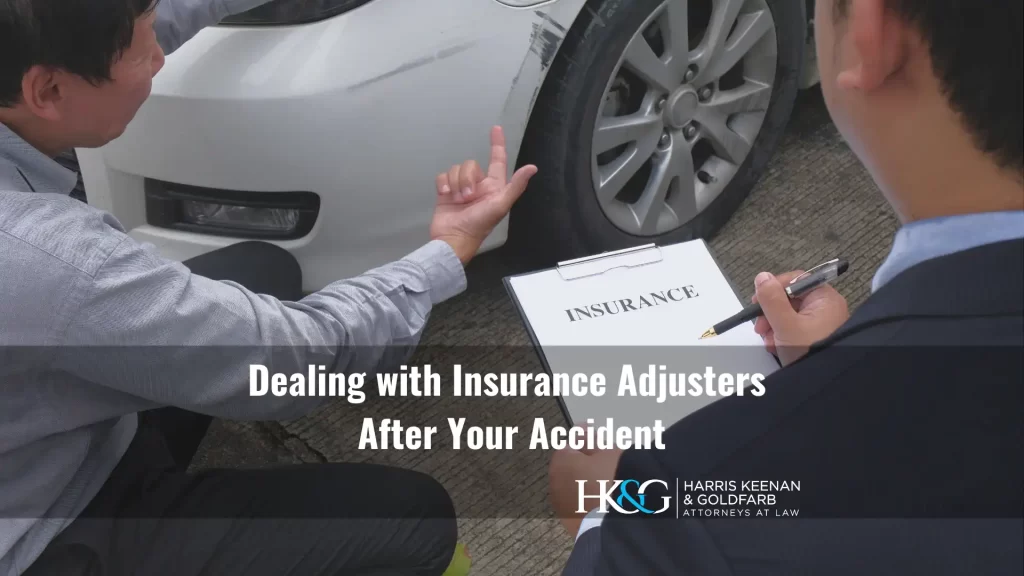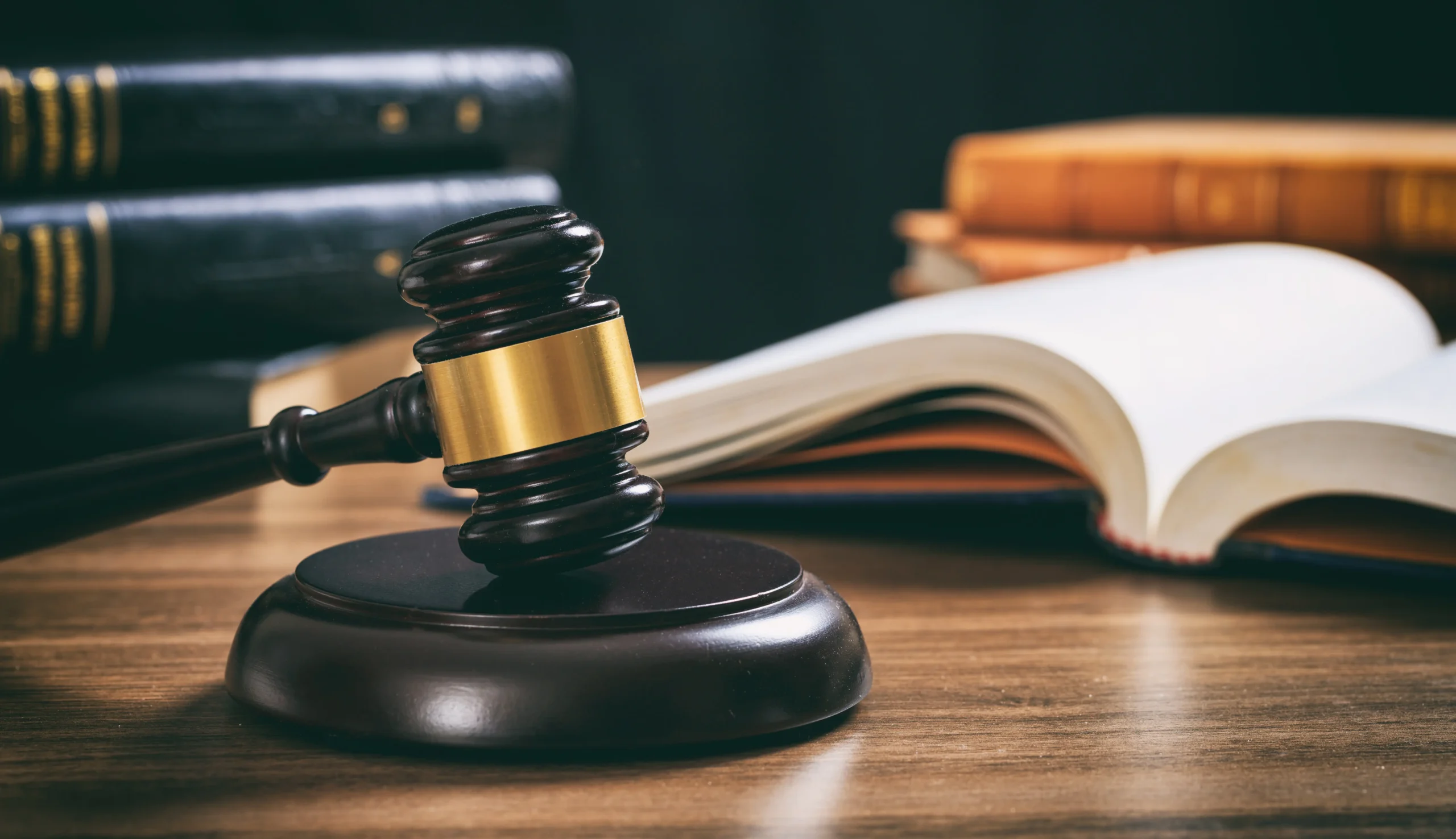A Brooklyn jury awarded Mr. Vargas $17.5 million for the City of New York’s violation of his civil rights for failing to provide him medical care while in custody. The jury found that the police officers involved failed to provide the necessary medical treatment and awarded $17.5 million to Mr. Vargas.
Recommended Articles
Categories
- Accidents
- After an Accident
- Compensation
- Firm News
- Insurance Claims
- Lawsuits
- New York Car Accident Resources
- New York Medical Malpractice Resources
- New York Motorcycle Accident Resources
- New York Nursing Home Injury & Abuse Resources
- New York Truck Accident Resources
- Personal Injury
- Workplace Injury
Practice Areas
Get A Free Case Evaluation
Dealing with Insurance Adjusters After A Crash
Were you hurt in an accident that wasn’t your fault? An injury can derail your life, require ongoing medical care, and incur expensive bills. Dealing with the insurance adjuster might seem straightforward, but they can make the process challenging. You must remember the adjuster isn’t your friend. They don’t want to pay you, no matter what they say or act because they are trying to save money for their employer. They aim to obtain evidence they can use against you to justify a low settlement or deny your claim.
 Dirty Tricks Insurance Adjusters Use
Dirty Tricks Insurance Adjusters Use
Don’t allow an accommodating or seemingly friendly insurance adjuster to fool you. They likely want you to let down your guard and say something damaging to your claim. The adjuster doesn’t work for you. They work for the insurance company, and their job is to avoid a significant settlement.
Tricks insurance adjusters commonly use include:
Wait you out
You want to complete the claims process quickly to recover compensation and move forward with your life. However, the adjuster has a different plan. They might not return your calls or emails, hoping you’ll get frustrated and give up on the claim.
Force an admission of fault
The adjuster doesn’t want to accept liability for their policyholder’s actions. That would require them to pay the claim. They might ask confusing or vague questions about the accident to get you to admit fault. If you’re partially responsible for your injury, the adjuster can reduce your compensation based on your percentage of shared fault.
Ask for medical authorization
The adjuster can try to get a signed HIPAA form to request copies of your medical records. It seems harmless, but the authorization request might include records dated before the accident. They can use the information to blame your injury on something else.
Use social media against you
Believe it or not, insurance adjusters will comb the internet for digital evidence that works in their favor. That includes browsing your social media accounts. Anything that contradicts the extent of your injury can ruin your chance of a favorable outcome.
Delay paying the claim
The insurance adjusters know the financial burden of an accident. They can take advantage of that by offering a lowball settlement and refusing to negotiate for a higher number. They know you’re desperate to settle, and any amount of money is enticing.
Discourage you from hiring a lawyer
The adjuster knows an experienced personal injury attorney will understand how to combat their tricks. They might try to maintain the upper hand by talking you out of hiring an attorney.
What Not to Say to an Insurance Adjuster After an Accident
 There are some statements you should never make to an insurance adjuster, such as:
There are some statements you should never make to an insurance adjuster, such as:
Admitting fault
You must avoid admitting fault for the accident even if you believe you’re partially responsible. Discovering your actions might have contributed to the accident is the ammunition the adjuster needs to bolster their arguments against paying your claim.
Describing your injuries as minor
You might think you have a minor injury, especially days after the accident. However, you shouldn’t downplay how you feel. Symptoms can appear days or weeks later and indicate a severe injury. If you initially say you’re okay and change your story later, the adjuster will assume you’re lying to get more money.
Speculating about the accident
Forgetting some details is normal. The traumatic experience can skew your memory of how the accident occurred. If the insurance adjuster asks for your version of events and you can’t remember, don’t speculate or offer an opinion. The information you provide might work in their favor.
Agreeing to a recorded statement
A recorded statement allows the adjuster to record everything said during a conversation about the incident. You’re not legally obligated to comply with their request. If they ask for a recorded statement, politely decline.
Accepting the first settlement offer
The first settlement offer isn’t always the best. Insurance adjusters often start low and hope the accident victim will accept. You can negotiate for a higher number if you believe you deserve more.
Consult an Experienced New York Personal Injury Lawyer
Communicating with an insurance adjuster can be overwhelming. You don’t have to take on this responsibility alone when you hire Harris Keenan & Goldfarb. We will talk to the adjuster about the accident so you can focus on getting better.
If you sustained injuries in an accident someone else caused, do not hesitate to call Harris Keenan & Goldfarb at or contact us online for a confidential consultation.
Related Reading:
Over $500 Million in Verdicts and Settlements
Our track record showcases over $500 million won for our clients. Each victory underlines our commitment to justice and client care. Explore our impact, case by case.
What Our Clients Say About Us

Thank you so much for recovering my injury case from 9 years ago that was dead in the water since the company went bankrupt and there was nothing else to do. Miraculously, you resurrected my case and was able to get a settlement which completed for me the horrific accident and the suffering I endured because of it. HK&G makes miracles happen by getting the job done and seeing that justice is served. Thank you so much.
Susan C.
Jason Steinberg is a great lawyer Donna and Terry were always very professional and kind I will always highly suggest this law firm and team to anyone out their. Thank you again to everyone at this incredible Firm!!!
They got me Justice, and achieved a substantial outcome for my case.
I am very impressed, and thankful for their outstanding performance on my behalf.
I am very pleased, and significantly satisfied with their representation.
‐-
Sherylon Wilkins
6 years ago I had a slip and fall accident at my employers place of business. I reached out to them because I knew that I was being wrongfully treated. They took care of the case, restored my self confidence, and brought so much peace to my problem riddled life.
I can recommend without a shadow of a doubt the services of Harris, Keenan & Goldfarb to anyone who is in need of someone who will have your back!
Frequently Asked Questions
Common questions that prospective clients have about personal injury claims include:
Do I need an attorney?
When you have suffered an injury, it can be difficult to know what to do next. If the injury was caused by someone else’s negligence, you may be entitled to compensation. However, filing a personal injury claim can be a complex and time-consuming process. An experienced attorney can help you navigate the legal system and fight for the maximum possible compensation.
How do I know I have a case?
When should I contact an attorney?
How do I determine which one to choose?
Once I hire an attorney, what should I expect?
Recent News
Find out how to move forward after an unexpected event with our short, helpful articles. We share simple advice that can make a big difference in tough times.
Contact Us
Monday - Friday: 9am - 6pm









































